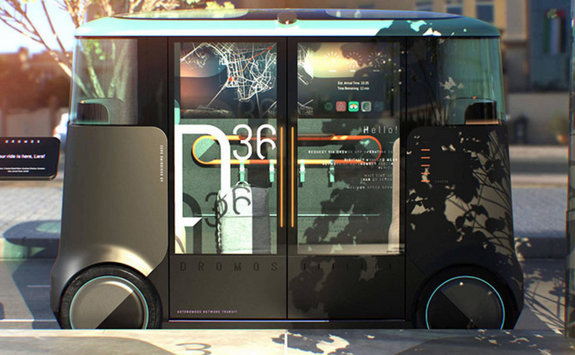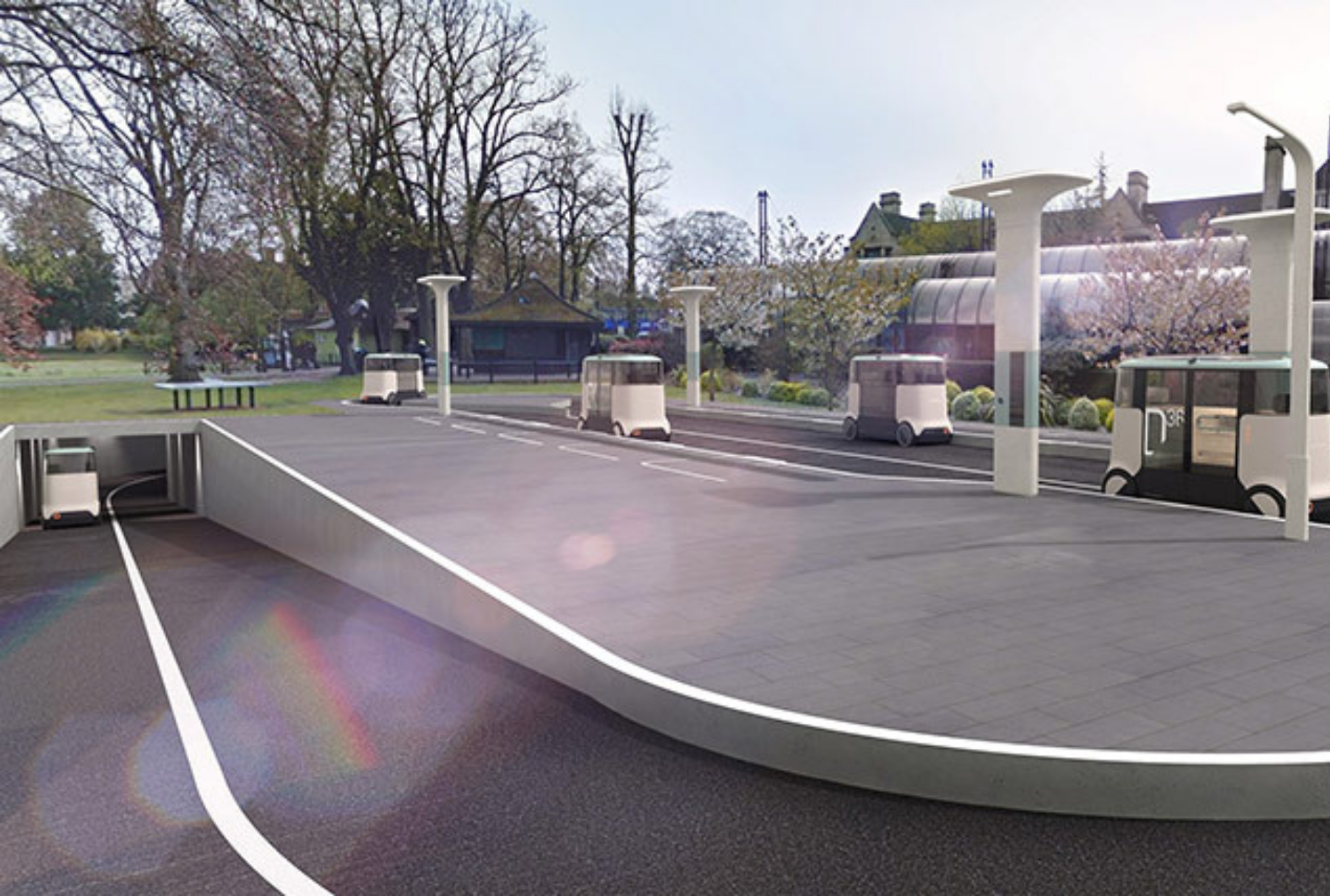‘Driverless’ public transport option for new Cramlington development
A new study will determine the feasibility of an autonomous, ‘driverless’ public transport system between Seaton Delaval Station and the Northumbria Specialist Emergency Care Hospital in Cramlington.
12 October 2023
A new study will determine the feasibility of an autonomous, ‘driverless’ public transport system between Seaton Delaval Station and the Northumbria Specialist Emergency Care Hospital in Cramlington.
Innovate UK has awarded £160,000 for the initiative, which is led by developer, Dysart, in collaboration with Newcastle University, Milestone Transport Planning, Dromos, and Pegasus Group. It holds the promise of providing an accessible, low-carbon solution to bridge the connectivity gap between these crucial public infrastructure assets.
The initiative, led by developer, Dysart, in collaboration with Newcastle University, Milestone Transport Planning, Dromos, and Pegasus Group holds the promise of providing an accessible, low-carbon solution to bridge the connectivity gap between these crucial public infrastructure assets.
The ground-breaking feasibility study, funded through Innovate UK’s Commercialising Connected and Automated Mobility programme, is set to examine the potential of introducing a zero-emission Connected Autonomous Mobility (CAM) system to establish a vital public transport link between Seaton Delaval Station on the soon to be reinstated Northumberland Line and the Northumbria Specialist Emergency Care Hospital (NSECH) in Cramlington.
The proposed Northumberland Line, a significant passenger rail project, will connect rural areas of Northumberland to the county's main towns and urban centres in Newcastle and North Tyneside and is due to open in the summer of 2024. NSECH is England’s first purpose-built specialist emergency care hospital, with emergency consultants on site 24 hours a day, seven days a week, as well as consultants in a range of specialities offering world-class care for critically ill and injured patients.
The development of a new station at Seaton Delaval could offer improved connectivity to the Hospital by public transport: as it stands, the new rail station does not propose any direct link to NSECH so the opportunity to consider some innovative future mobility solutions is timely.
Safe, direct, demand-responsive, and reliable public transport solution
Newcastle University, leveraging its experience in delivering and evaluating CAM schemes, such as the Sunderland Advanced Mobility Shuttle (SAMS) and the Vantec Connected Automatic Logistics (VCAL) projects that were funded by Innovate UK earlier this year. The University will assess user-centric requirements such as service delivery, willingness to use and willingness to pay, carbon emissions, as well as accessibility to ensure the project's success as a sustainable and user-friendly public transport solution for the hospital, its staff, patients, and visitors.
Professor Phil Blythe CBE, Professor of Intelligent Transport Systems, and head of the Future Mobility Group, Newcastle University, said: “We are delighted to be part of this exciting and critical project. If we can come up with a feasible solution that will deliver the benefits necessary to provide a long term, affordable and sustainable link between the hospital and the Seaton Delaval Station, we believe this could be the proving ground and blue-print for many other potential locations where automated public transport shuttles could solve particularly difficult connectivity challenges.”
Mike Clark, Development Director at Dysart, commented on the project: “This feasibility study has the potential to deliver world-first technology right on our doorsteps here in Cramlington. The autonomous proposal is a 21st century solution to a transport challenge which is efficient and environmentally sound. There is a whole package of opportunity around Cramlington and NSECH which has the potential to deliver real and sustained benefit to the whole community.”
The proposed Dromos system envisions connected autonomous vehicles operating both individually and as a 'train' along new, segregated infrastructure. This innovative approach promises a safe, direct, demand-responsive, and reliable public transport solution that can be swiftly deployed, offering a level of privacy, accessibility, and inclusion unmatched by other available transport modes.
The feasibility study, led by Milestone Transport Planning, will not only explore passenger transport opportunities between NSECH and Seaton Delaval rail station but also identify ways to expand the route to connect with Cramlington and Seghill. The project aligns with the Department for Transport's "Future of Mobility Urban Strategy" and "Future of Transport: Rural Strategy," offering a unique opportunity to integrate rural and urban areas via an innovative public transport system. With potential for rapid deployment and extension, the project could lead to a world-leading CAM network within two years.
Press release adapted with thanks from Dystart.


